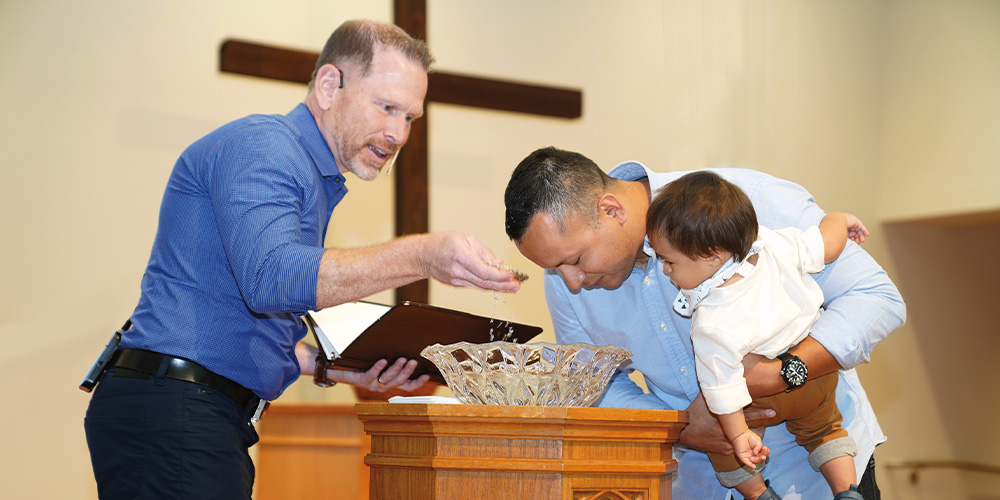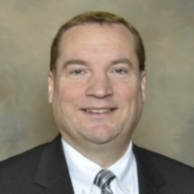 |
The Lord uses his church to place public ministers of the gospel where he wants them to serve.
There is no use denying it. The language of the church is peculiar.
Sipping on a coffee, a new member said to a woman standing nearby, “I noticed in the entryway a sign-up sheet for a get-together next Friday. Looks like fun.” No sooner had the words come from her mouth than the longtime member offered a gentle correction. “You mean narthex, not entryway. And we don’t have get-togethers; it’s a fellowship event.” That new member quickly learned that the church has a language all its own. If she wants to communicate without fear, she has to enroll in CSL (Church as a Second Language) classes. Immediately.
The language difference might be most pronounced in the terminology applied to those who serve in the church. After 20 years of service, the only pastor the congregation had ever known was leaving. Everyone was talking about it. “I am a little concerned about how long it will take to hire another pastor,” one member noted. Soon she heard the correction, “You mean call. We will call, not hire, our next pastor.”
What are we to do with this peculiar language of the church? Though some may act otherwise, the reality is that some terms are nothing more than tradition and can be omitted. Take narthex, for example. Nothing is really lost by calling it an entryway or a lobby, except the mystery of the word narthex. God never commands the use of that word.
So what about call and hire? Is it like narthex and entryway, fellowship event and get-together—one reflects tradition and the other reflects life in the 21st century? Can we use the terms interchangeably without loss or detriment?

The Lord provides public ministers
The risen Savior said to his disciples on Easter Sunday, “Receive the Holy Spirit. If you forgive anyone’s sins, they are forgiven; if you do not forgive them, they are not forgiven” (John 20:22,23). With those words, Jesus gave every Christian the power and right to forgive sins. In the words of the Great Commission (Matthew 28:18-20), Jesus granted every believer the authority to proclaim the good news and baptize in his name. By commissioning his people to preach the gospel to the ends of the earth, the Lord reveals his love for souls and his desire that all come to a knowledge of the truth.
Yet, the Lord’s love did not stop there. He also instituted the public ministry of the gospel. The Lord of the church designed that some would carry out the proclamation of the gospel in a special way—in the name of their fellow believers publicly. St. Paul reminds us that the ascended Lord gives his church individuals to serve on its behalf and for its benefit: “Christ himself gave the apostles, the prophets, the evangelists, the pastors and teachers” (Ephesians 4:11). The One who bought the church with his blood will never abandon her. He will, until the day he returns, continue to shower her with gifts, including the gift of public ministers of the gospel.
The Lord could drop teachers, pastors, and staff ministers from the sky. Instead, the One who provides food and clothing through natural means has decided to operate in the same way in providing workers for his church. He may hide himself behind natural means and processes, but the Lord remains the exclusive supplier of public ministers of the gospel. Through Word and sacrament, he instills in some individuals the desire to use the Lord’s gifts in public ministry. Through extended instruction in the Word and training in minis-try skills, he prepares them to serve in that special way. When they finish their training, the Lord places those gifted and trained individuals into the public ministry of the gospel, whatever form that ministry might take.

The Lord calls workers through his church
In Scripture we read about many whom the Lord placed into public ministry directly. The apostle Paul would fit into that category; the Lord Jesus appeared to him and appointed him to serve as apostle to the Gentiles. “Paul, called to be an apostle of Christ Jesus by the will of God,” he wrote (1 Corinthians 1:1). Instead of appointed or placed, Paul used the term called to emphasize that the Lord himself selected Paul for this role.
The Lord continues to place people into public ministry. Only now he chooses to do so indirectly, through his church. Although every Christian in a congregation has the authority and right to proclaim the gospel, no Christian is to take upon himself the privilege of doing so on behalf of others. Paul writes, “How can anyone preach unless they are sent?” (Romans 10:15). The Augsburg Confession states it this way: “It is taught among us that nobody should publicly teach or preach or administer the sacraments in the church without a regular call” (Article XIV). A Christian must wait to be asked to do so by his or her fellow believers. That happens as a congregation or other gathering of believers formally requests that someone serve in a particular ministry in their name and for their benefit. They call that person, but it is ultimately the Lord who is calling.
He may hide himself behind natural means and processes, but the Lord remains the exclusive supplier of public ministers of the gospel.
A congregation does not work unilaterally in appointing workers. For that reason we do not use the term hired for those who serve in public ministry. Hired gives the impression that the visible calling body has more authority than the One who chooses to remain hidden. Those who serve in public ministry do so not only as representatives of a congregation but, even more important, as representatives of Christ. The term called acknowledges that reality. In fact, divine call would be more exact, because it emphasizes that the Lord of the church is the One who places individuals into representative ministry.
There are other good reasons to refer to this arrangement as a divine call. It underscores the Lord’s grace to the individual selected to serve in his name, because no sinful human being is worthy of such an honor. It also highlights the Lord’s grace to the body of believers to whom he has given an individual to serve them with Word and sacrament. The term divine call also reminds both worker and congregation that the Lord stands behind public ministers. They speak in his name, by his authority, and with his promise to bless.
Some church terms come to us by tradition and may be omitted. That is not the case with the expression divine call. It comes to us from Scripture and reminds us of the Lord’s love for us. He has given us public ministers of the gospel who speak in his name and for our eternal benefit. Through the church, he has placed them exactly where he desires for them to serve in order to teach us the most important language of all: “Jesus is Lord.”
This is the first article in a four-part series on the divine call. It is a reprint of a series run in 2012.
Learn more about the divine call in a Bible study developed by the Conference of Presidents. It’s available at welscongregationalservices.net/called-to-serve-bible-study.
Author: Earle D. Treptow
Volume 109, Number 05
Issue: May 2022
- The Lord calls: Article 4
- The Lord calls: Article 3
- The Lord calls: Article 2
- The Lord calls: Article 1







